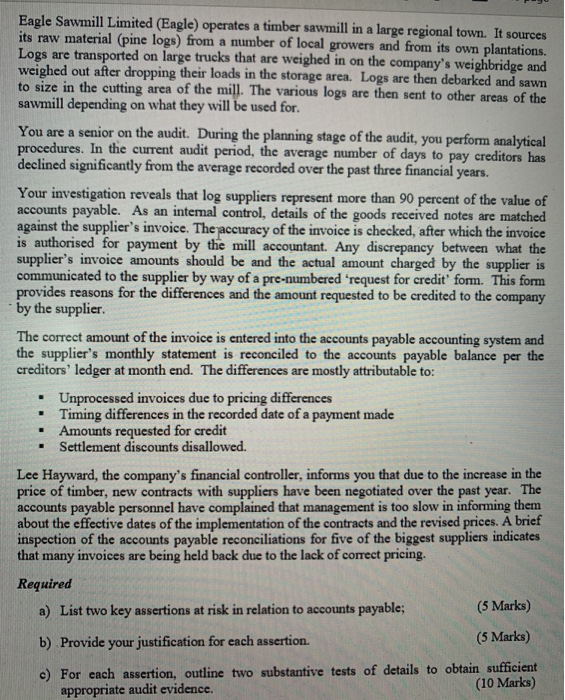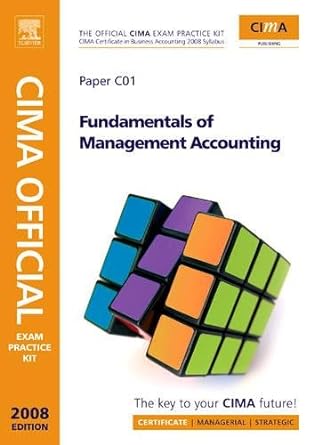Eagle Sawmill Limited (Eagle) operates a timber sawmill in a large regional town. It sources its raw material (pine logs) from a number of local growers and from its own plantations. Logs are transported on large trucks that are weighed in on the company's weighbridge and weighed out after dropping their loads in the storage area. Logs are then debarked and sawn to size in the cutting area of the mill. The various logs are then sent to other areas of the sawmill depending on what they will be used for. You are a senior on the audit. During the planning stage of the audit, you perform analytical procedures. In the current audit period, the average number of days to pay creditors has declined significantly from the average recorded over the past three financial years. Your investigation reveals that log suppliers represent more than 90 percent of the value of accounts payable. As an internal control, details of the goods received notes are matched against the supplier's invoice. The accuracy of the invoice is checked, after which the invoice is authorised for payment by the mill accountant. Any discrepancy between what the supplier's invoice amounts should be and the actual amount charged by the supplier is communicated to the supplier by way of a pre-numbered 'request for credit form. This form provides reasons for the differences and the amount requested to be credited to the company by the supplier. The correct amount of the invoice is entered into the accounts payable accounting system and the supplier's monthly statement is reconciled to the accounts payable balance per the creditors' ledger at month end. The differences are mostly attributable to: Unprocessed invoices due to pricing differences Timing differences in the recorded date of a payment made Amounts requested for credit Settlement discounts disallowed. Lee Hayward, the company's financial controller, informs you that due to the increase in the price of timber, new contracts with suppliers have been negotiated over the past year. The accounts payable personnel have complained that management is too slow in informing them about the effective dates of the implementation of the contracts and the revised prices. A brief inspection of the accounts payable reconciliations for five of the biggest suppliers indicates that many invoices are being held back due to the lack of correct pricing. Required a) List two key assertions at risk in relation to accounts payable; (5 Marks) b) Provide your justification for each assertion. (5 Marks) c) For each assertion, outline two substantive tests of details to obtain sufficient appropriate audit evidence. (10 Marks)







